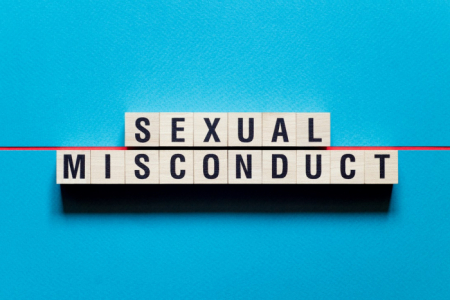
In the wake of Matt Hancock’s resignation as Health Minister following leaked CCTV footage of him embracing and kissing Health Advisor Gina Coladangelo on Department of Health premises in early May 2021; some may be asking what is acceptable conduct in the workplace in relation to sexual contact?
Firstly, Matt Hancock is a Crown employee who enjoys most of the same statutory employment protection rights as ordinary employees. Gina Coladangelo is a non-executive director on the Board of the Department of Health. It is not clear whether she is an employee although she reportedly commands a “salary” of £15,000 per year for 1 -2 days work per week. Generally non-executive directors are not employees even if they do receive a payment for their services.
It is extremely difficult, in my view impossible, for employers to impose rules that make it misconduct or gross misconduct to have a romantic relationship with a colleague. Everyone has a right to privacy and a private life as enshrined in the Human Rights Act 1998. Indeed many people meet their future partner/spouse at work. What an employer can do however is make rules prohibiting sexual activity, however trivial, in the workplace. Such conduct can be categorised as gross misconduct and as such as employee can be fairly dismissed for it, provided a fair disciplinary procedure has been followed. The Prime Minister chose not to dismiss Mr Hancock but ultimately 24 hours later, Mr Hancock “fell on his sword” and resigned anyway.
Issues under the Equality Act 2010 may also arise from affairs or sexual behaviour in the workplace. The CCTV footage of Mr Hancock and Ms Coladangelo appears to show that both individuals willingly engaged in sexual behaviour. If however, one party does not welcome such conduct, the perpetrator will have sexually harassed the other party (as well as having committed assault). The definition of harassment is found in section 26 of the Equality Act 2010 and is defined as:
“unwanted conduct…that has the purpose or effect of violating [an individual’s] dignity or creating an intimidating, hostile, degrading, humiliating or offensive environment.”
If the perpetrator is older, has line management responsibility for the individual or otherwise holds a more senior role than the individual; this will be viewed more seriously by an Employment Tribunal when assessing compensation.
Claims for harassment can be brought against the perpetrator personally and against his or her employer, who is vicariously liable for the actions of its staff.
Such claims are emotionally damaging for both parties and their families who suffer the humiliating fall out too.
Questions are also likely to be asked about breach of data protection in relation to the leaked CCTV footage from the Department of Health to the press and the circumstances of Ms Coladangelo’s appointment as non-executive director given it is reported that there is no public record of it. Then there’s also the moral issue of the hypocrisy of Mr Hancock’s disregard for social distancing when he was the minister responsible for implementation of the guidance and his condemnation of former Sage advisor Professor Neil Ferguson’s affair in lockdown which led to his eventual resignation in May 2020.
In the circumstances, the blatant disregard for government mandated social distancing itself would have been gross misconduct and a sackable offence.
A simple affair at work has given rise to a myriad of moral and legal issues.
If you require advice in relation to sexual misconduct, harassment or discrimination in the workplace, then please contact me by email at slomas-fletcher@jacksons-law.com or by telephone 0191 814 9699.
Sally Lomas Fletcher – Associate Solicitor – Employment Law
Please share the article


